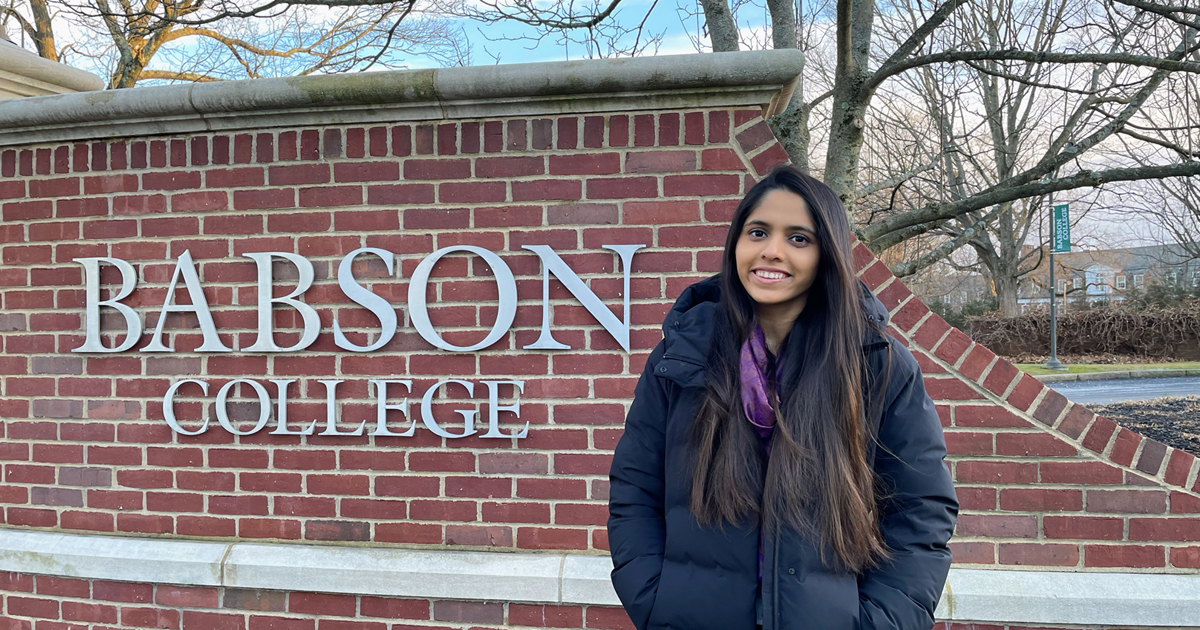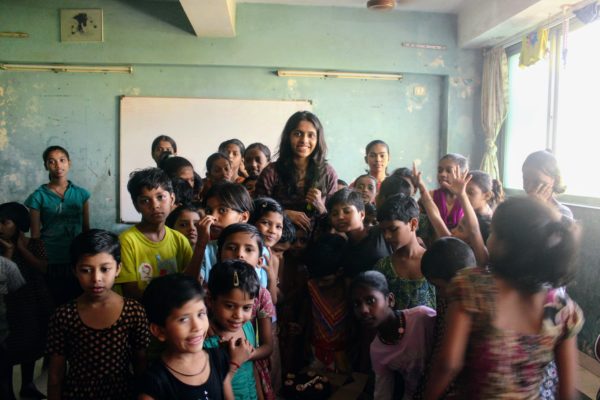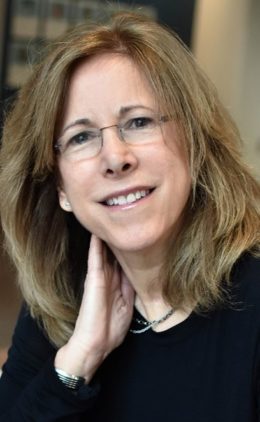Babson MBA Graduate Takes Uncommon Path to Education Equity

Preshika Jain MBA’21 started teaching the summer she turned 15. The nonprofit residential school, Crayons, was located in a low-income section of Mumbai, India, and Jain taught English, math, and art to 70 girls between the ages of 3 and 15. The experience was formative. “I saw that with even a slight improvement in education,” she said, “they not only benefited but their whole community benefited.”
She enjoyed teaching so much that what was meant to be a summer project turned into a vocation. Jain continued to teach at Crayons every summer for the next six years until she graduated from college. Even afterward, she would return every year to visit the residential school.
Then, one day, it wasn’t there anymore.
“It had just disappeared. I reached out to the community, I reached out to the cops, I tried to find the girls. I got to know from the locals that it had shut down,” Jain said.

The abrupt shuttering hit her hard, but it also strengthened her resolve to find a business solution to an education problem. Given her interest in teaching, Jain said, “People always ask me, ‘Why a business degree rather than a master’s of education?’ But, I knew that if you don’t have a sustainable business model, the impact you create in education can disappear in a few months.”
That desire led Jain to Babson College and, ultimately, to the Lewis Institute for Social Innovation’s Uncommon Table.
Finding Solutions
In seeking a solution, Jain first began to think about education technology. What if a teacher in a remote location without access to high-quality books could log in to a system with advanced educational materials? What if a student in a financially strapped inner city school could get extra help online?

Jain had been working in tech, leading business development for food and ed tech companies. “But, I was missing my purpose,” she said. “I wanted to upskill myself, to seek financially sustainable solutions to global education challenges, and what better place to do that than at the Lewis Institute?”
Ultimately, she decided to pursue her MBA at Babson College. She had already been in touch with Lewis Institute founding executive director Cheryl Kiser, who, Jain says, “gave wings to my thoughts.”
Kiser also gave Jain a place to develop her ideas.
“Preshika is amazing,” Kiser said. “So engaging, so purposeful, and so full of energy and curiosity. We were talking about what she cared about. I told her we don’t have a speciality in ed tech, but that’s the beauty of the Lewis Institute: If you want to do something that fits with our mission of advancing global education, we can create anything you want.”
Under Kiser’s mentorship, Jain created an Ed Tech Uncommon Table that met once a month, usually with a special guest speaker from the field. “I realized that the world shared a lot of common problems in education, but also scalable solutions to them,” Jain said.
A Booming Field
Through the Uncommon Table, Jain also met Carol Atwood, a Babson Entrepreneur in Residence, who runs the Center for Curriculum Redesign (CCR).
Jain joined CCR and says she was able to put the knowledge gained from her MBA classes and the Uncommon Table into practice by working on an ed tech product. A quality education, Jain says, takes students beyond rote memorization and helps them build strong skills. The ed tech product she worked on is a 4D, web-based tool that helps teachers create lesson plans by prompting them with questions, suggestions, and activities that will encourage students to apply concepts beyond a given application.
For example, a student learning about the Earth’s rotation would be prompted to apply the concept of rotation to other applications, “like how a basketball spins on your finger,” she said. The goal is to “help teachers create impactful lesson plans in a simple way to ensure that students are learning what is meaningful and developing 21st century skills,” including resilience and creativity.

Upon graduating from Babson in December, Jain already has been offered a position in the ed tech industry, which she says “is booming,” but she is still deciding what she wants to do. Her goal is to continue to pursue a role in ed tech using the experience gained through her work at CCR, Babson, and—the source of her inspiration—teaching at the Crayons school in India.
Ed tech “democratizes education,” Kiser says, “by getting tech into the hands of as many people as possible.”
Jain agrees: “I want to continue to learn more and to find solutions that create equity and sustainability in education, so that there is never an occasion that a child does not have access to education or that access is taken away after a time. It is a big dream, but I believe it is possible.”
Posted in Community, Entrepreneurial Leadership





